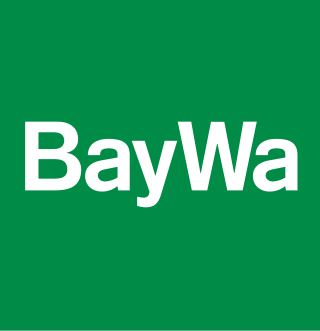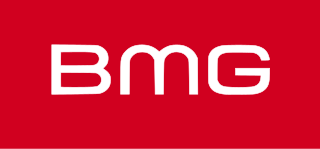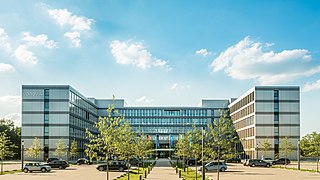External links
- Klaus Josef Lutz at BayWa
- Munzinger-Archiv: Klaus Josef Lutz (in German)
Klaus Josef Lutz | |
|---|---|
| Born | March 20, 1958 |
| Nationality | German |
| Alma mater | |
| Occupation |
|
| Years active | 1987–present |
| Employers | |
| Office | |
Klaus Josef Lutz (born March 20, 1958) [1] is a German lawyer and business manager. In 2008, he took over as chief executive officer and chairman of the board of BayWa and had since shaped the listed group with activities in the agricultural, building materials, and energy sectors. [2] [3] [4] Previously, as managing director, he restructured, among others, Süddeutscher Verlag, which publishes the Süddeutsche Zeitung. [5] Lutz is considered an expert on cooperatives. [6]
Luz was born and grew up in Munich, where he lives with his wife. After graduating from high school, he studied law at the Ludwig Maximilian University in Munich. In 1987, he was admitted to the bar. In 2013, Lutz was appointed honorary professor of cooperative business administration by the Technical University of Munich. [7]
Lutz started his career as a lawyer at a Munich law firm. In 1989, he moved to the technology industry to join Digital Kienzle, then Germany's second-largest software company. [8] The subsidiary of the U.S. Digital Equipment Corporation was in trouble. As managing director and labor director, Lutz oversaw the company's restructuring, [9] which included job cuts. [10] [11] To mitigate the impact on the remaining employees, Lutz developed an employee company as an alternative to the traditional Auffanggesellschaft. [12] [13]
Between 1996 and 2002, Lutz took on leading positions in various industries, such as managing director of the Burda printing plants and board member of i-center, [14] a wholesaler for electrical appliances that had previously belonged to Siemens. [15] As a member of the executive board of the mechanical engineering company Unaxis, he was also involved in a profound change in the company's traditional business.
Lutz gained greater notoriety through his appointment to the management of Süddeutscher Verlag (2002). For a time, he also managed the operations of Süddeutsche Zeitung (2003). [16] The entire group of companies had fallen into a crisis that threatened its existence due to declining advertising revenues. [17] Lutz put an end to the nationwide expansion course and developed a modernization program. [18] In doing so, he primarily pushed the development of new products, such as the "SZ Bibliothek" and the "SZ Editions." [19] The circulation of the daily newspaper itself stabilized.
Lutz was the lead negotiator in the sale of a majority stake in Süddeutscher Verlag, including Süddeutsche Zeitung, to Südwestdeutsche Medien Holding (SWMH). [20] After completed the transaction in 2007, the two parties parted ways. [21] [22]
In 2008, Lutz succeeded Wolfgang Deml as chairman of BayWa's board of management. [23] [5] He took over an economically sound company that had never made a loss since its founding and had announced record profits the year he took office. [24] However, the group's historically grown structure proved unsustainable, making it difficult to invest in new business areas. [25] In addition, BayWa repeatedly struggled with fluctuating commodity prices as part of its business model. [26] [27]
Lutz pushed for both diversification and internationalization of BayWa, [28] but preserved the group's historical roots. [29] An example of changes during his tenure is creating a renewable energy business unit, [30] which bundled all solar and wind energy companies to respond to the shrinking heating oil market. [31] [32] [33] The acquisition of New Zealand fruit trader Turners & Growers gave BayWa a better position in the Asian market. [34] [35] Dutch agricultural trader Cefetra was purchased to give it a strong presence in European markets as well. [36]
Lutz sold BayWa DIY and garden centers and also divested the group's car dealership. [37] [38] He also restructured the group's real estate portfolio. This freed up funds for the development of digital technologies for agriculture, known as smart farming. [39] [40] BayWa considers itself a pioneer in this field, [41] in part due to acquisitions such as PC-Agrar (now known as FarmFacts). [42]
During Lutz's tenure at BayWa, revenues increased from around €8.8 billion (2008) to €19.8 billion in 2021. [43] [44] Renewable energy now accounts for the largest share of the group's profits. [45] Most recently, Lutz's contract was extended in 2020. [46] In 2022, BayWa announced his move to the supervisory board in 2023, planning to become chairman. [47]
In 2013, Lutz was elected chairman of the supervisory board of Euro Pool System International (Rijswijk/Netherlands), [48] a leading logistics company for reusable packaging. Since 2015, he has also been Chairman of the Supervisory Board of the banknote and smart card manufacturer Giesecke+Devrient (Munich/Germany). [49] [50] In 2017, the German Raiffeisen Association, the umbrella organization of cooperatively organized companies in the German agricultural and food industry, elected vice president. [51]
Lutz sits on the advisory and supervisory boards of other business enterprises in Germany and abroad. In addition, as president of the Chamber of Industry and Commerce for Munich and Upper Bavaria, as well as president of the Bavarian Chamber of Industry and Commerce, he is committed to the interests of the regional economy. [52] [53] This was recognized in 2019 with the award of the Bavarian State Medal. [54]

Bertelsmann SE & Co. KGaA is a German private multinational conglomerate corporation based in Gütersloh, North Rhine-Westphalia, Germany. It is one of the world's largest media conglomerates and is also active in the service sector and education.

DB Cargo is an international transport and logistics company. It is responsible for all of the rail freight transport activities of the German railway company Deutsche Bahn both inside Germany and on a global level. DB Cargo has a registered office in Mainz and a further administrative office in Frankfurt am Main.

Roland Berger is an international management consultancy headquartered in Munich. With 2,400 employees and 52 offices in 35 countries, it has a presence in all major industrialized and emerging markets. As the market leader in Germany, Roland Berger is the only European consultancy with an international presence and is one of the leading representatives of its industry. Annual sales in 2018 were around EUR 600 million, the most successful financial year to date.

Hubert Burda Media Holding is a German media group with headquarters in Offenburg. It originated as a small printing business, founded by Franz Burda Snr in Philippsburg, in 1903.

The Bertelsmann Stiftung is an independent foundation under private law, based in Gütersloh, Germany. It was founded in 1977 by Reinhard Mohn as the result of social, corporate and fiscal considerations. As the Bertelsmann Stiftung itself has put it, the foundation promotes "reform processes" and "the principles of entrepreneurial activity" to build a "future-oriented society."
Arvato is a global services company headquartered in Gütersloh, Germany. Its services include customer support, information technology, logistics, and finance. The history of Arvato goes back to the printing and industry services division of Bertelsmann; the current name was introduced in 1999. Today, Arvato is one of eight divisions of Bertelsmann, the media, services and education group. In 2016, Arvato had about 68,463 employees and an overall turnover of 3.84 billion euros.
Rational AG is a German manufacturer and retailer of commercial and industrial kitchen equipment for thermal food preparation. The company is based in Landsberg am Lech, Germany, and was founded by Siegfried Meister in 1973. It operates worldwide and has 25 subsidiaries in Europe, Asia, North and South America as well as seven branches in Germany.

BayWa AG is an internationally active group headquartered in Munich, Germany. Originally founded to support domestic agriculture, the company expanded its activities to the construction and energy sectors. BayWa is represented in more than 50 countries through its subsidiaries and holdings. The shareholder structure is still determined by the cooperative sector, which has shaped the corporate culture since its founding.

BMG Rights Management GmbH is an international music company based in Berlin, Germany. It combines the activities of a music publisher and a record label.
The Theodor Wolff Prize is a German journalism prize. It has been awarded annually since 1962 in five categories, equal prizes of €6,000, by the Federal Association of German Newspaper Publishers. In addition, at irregular intervals, journalists are awarded the Theodor Wolff Prize for their life's work.
The Axel-Springer-Preis is an annually awarded prize. The Award is given to young journalists in the categories print, TV, radio, and online journalism due to the decisions of the Axel-Springer-Akademie.

Vonovia is a European multinational real estate company based in Bochum, North Rhine-Westphalia. Its history goes back to Deutsche Annington, which merged with GAGFAH and was subsequently renamed Vonovia. The company currently owns around 400,000 apartments in Germany, Sweden, and Austria, making it a significant market player in these countries. Vonovia is a member of the DAX 40 and STOXX Europe 600 blue-chip indexes.

Thomas Rabe is a German business executive. In 2006, he was appointed to the Bertelsmann executive board, of which he has been chairman and chief executive officer since 2012. Under his leadership, the group has become more international, more digital and more diversified. In particular, he has advanced the business with music rights and the educational division. Additionally, Rabe was appointed chief executive officer of RTL Group in 2019.

Ceconomy AG is an international retail company headquartered in Düsseldorf, Germany. Its history goes back to the Metro Group. Ceconomy operates more than 1,000 consumer electronics stores in twelve countries. In addition to MediaMarkt and Saturn, the group owns Deutsche Technikberatung. 32.5% of its sales are generated online.

Martin Zielke is a German bank manager who served as chief executive officer and chairman of the board of managing directors of Commerzbank from 2016 until 2020.

Stefan Schmittmann is a German manager. He serves as chairman of the supervisory board of Commerzbank since May 2018.

Brigitte Mohn is a German businesswoman and a member of the Mohn family that has a significant influence on Bertelsmann group and the Bertelsmann Stiftung. Mohn is also chair of the German Stroke Foundation's executive board.

Rolf Eberhard Buch is a German business executive. In 2013, he was appointed CEO of the real estate company Deutsche Annington, which, following the takeover of GAGFAH in the year 2015, was renamed Vonovia. Previously, Buch held an executive position at Arvato.

Bettina Schausten is a German journalist.

The Foundation for Family Businesses is a non-profit foundation headquartered in Munich, Germany. It has a representative office in Berlin near the Reichstag building. Ever since the foundation was established in 2002, it has been committed to representing the interest of large family businesses Thus, it promotes academic research focusing on family businesses, in addition to holding events.